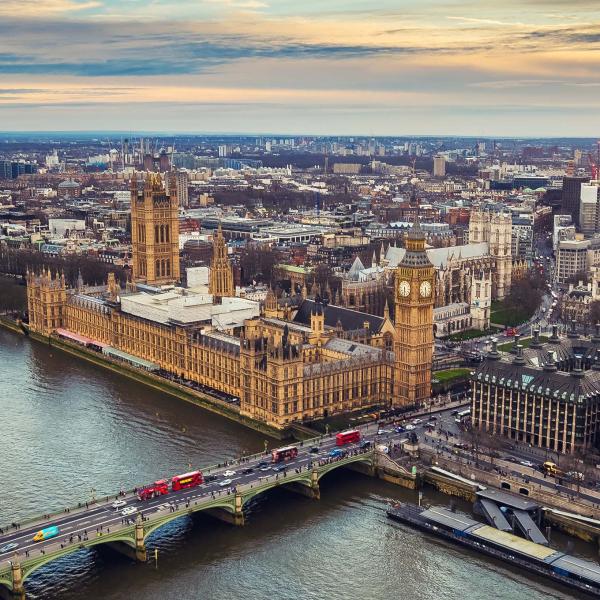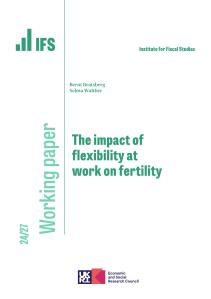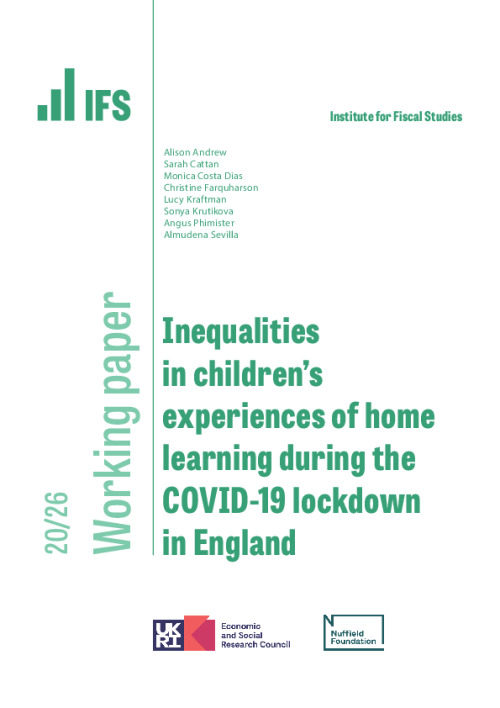Downloads
This paper combines novel data on the time use, home learning practices and economic circumstances of families with children during the COVID-19 lockdown with pre-lockdown data from the UK Time User Survey to characterise the time use of children and how it changed during lockdown, and to gauge the extent to which changes in time use and learning practices during this period are likely to reinforce the already large gaps in education attainment between children from poorer and better-off families. We find considerable heterogeneity in children’s learning experiences - amount of time spent learning, activities undertaken during this time and availability of resources to support learning. Concerningly, but perhaps unsurprisingly, this heterogeneity is strongly associated with family income and in some instances more so than before lockdown. Furthermore, our analysis suggests that any impacts of inequalities in time spent learning between poorer and richer children are likely to be compounded by inequalities not only in learning resources available at home, but also those provided by schools.
Authors

Deputy Research Director
Monica is a Deputy Research Director and Professor of Economics at the University of Bristol, with an interest in Labour, Family and Public Economics.


Research Fellow
Alison is a Senior Research Economist of our Institute with research interests in the economics of gender, marriage and education.

Deputy Research Director
Sonya Krutikova is an Associate Professor of Economics at Manchester University and IFS Deputy Research Director.

Associate Director
Christine's research examines inequalities in children's education and health, especially in the early education and childcare sector.

Angus Phimister

Lucy Kraftman

Almudena Sevilla
Working Paper details
- Publisher
- The IFS
Suggested citation
Andrew, A et al. (2020). Inequalities in children’s experiences of home learning during the COVID-19 lockdown in England. London: The IFS. Available at: https://ifs.org.uk/publications/inequalities-childrens-experiences-home-learning-during-covid-19-lockdown-england (accessed: 30 June 2024).
More from IFS
Understand this issue

Sure Start achieved its aims, then we threw it away
15 April 2024

Election Special: Is there a 'conspiracy of silence' between both parties?
6 June 2024

What does the Conservative's higher education announcement this week mean for apprenticeships and 'low-value' university courses?
1 June 2024
Policy analysis

How do the last five years measure up on levelling up?
19 June 2024

Free breakfast clubs in schools: what Labour’s plans would mean for pupils and families
25 June 2024

How should we interpret parties’ public spending pledges this election?
23 June 2024
Academic research

Income inequality in Ireland, 1987–2019
28 June 2024

Components of the evolution of income inequality in Sweden, 1990–2021
28 June 2024

The impact of flexibility at work on fertility
11 June 2024
